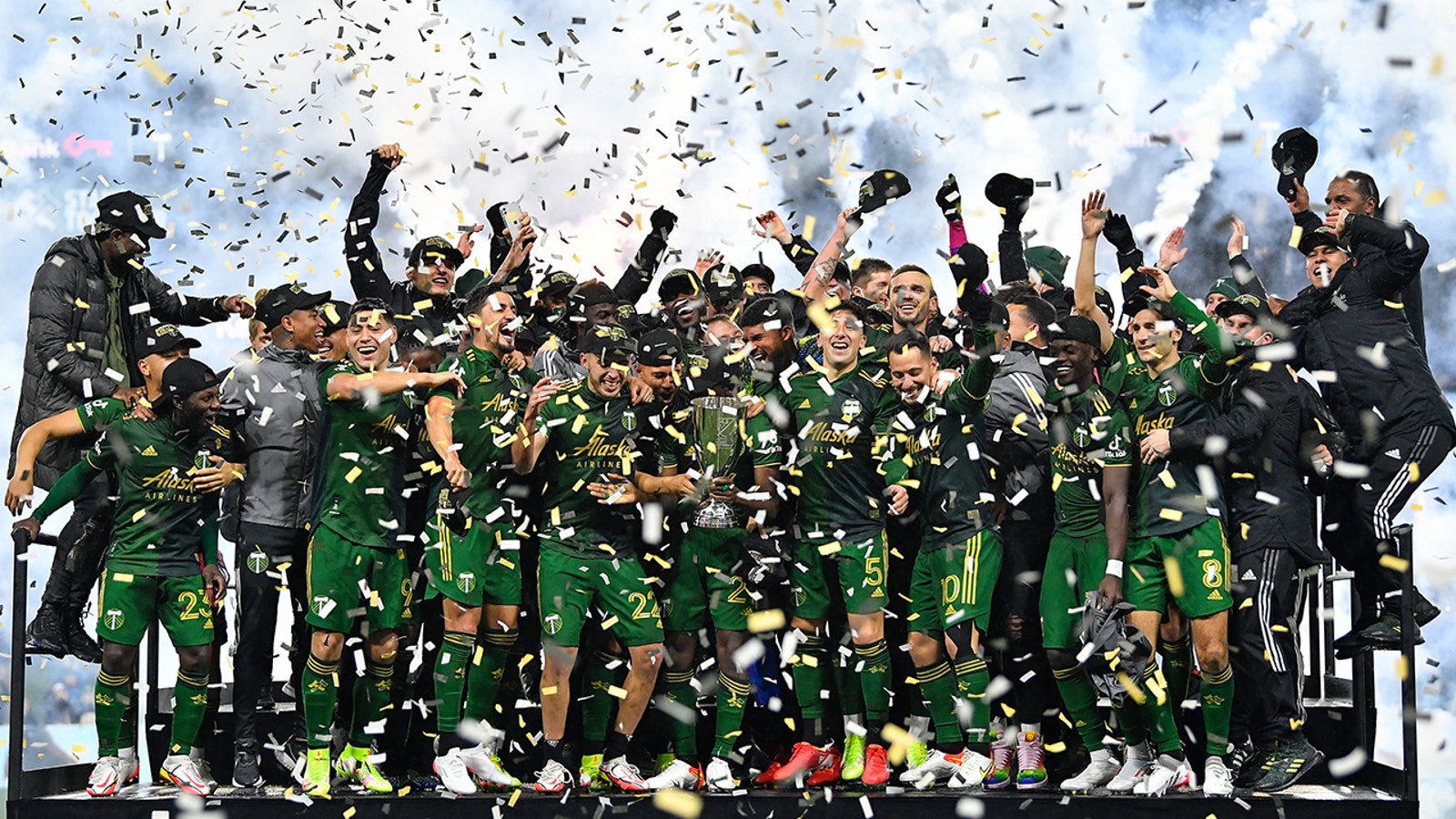
State of the League: MLS thriving more than ever before, with sights set even higher
By Doug McIntyre
FOX Sports Soccer Writer
Moments after giving his annual State of the League address Tuesday, Don Garber was asked how he’d feel if Saturday’s MLS Cup final were being hosted not by the Portland Timbers but by New York City FC.
"I’m convinced that NYCFC would’ve sold out Yankee Stadium," the league’s longtime commissioner replied.
The exchange encapsulated where MLS is as it wraps up its 26th season. On the one hand, it’s totally fair to suggest that staging the league’s marquee event in a venue built for baseball would be a bad look. On the other, "We would’ve had an incredible crowd."
Two things can be true at the same time — and that principle applies to much about MLS in 2021. The league isn’t perfect. It still has a long way to go. Fans always want more, as they should, but that doesn’t take away from the fact that MLS is in as healthy a place as it has ever been.
Garber, naturally, trumpeted the year’s highlights: Another new team, the league’s 27th, in Austin. Three sparkling new stadiums. The highest playoff viewership ratings ever, helped by the 1.8 million people who tuned in to FOX for the league’s first match on Thanksgiving Day. The slowly but steadily improving level of play.
Charlotte, which will debut as the 28th club next season, has already sold more season tickets than Atlanta United had at the same stage. Even in the COVID-19 era, Atlanta averaged 44,000 fans this season — more than all but eight clubs in the world.
St. Louis arrives in 2023, with Las Vegas, Phoenix and San Diego all vying to be the coveted 30th MLS franchise. (Garber confirmed Tuesday that Vegas is the front-runner.) The all-world training facilities popping up across the league have helped attract some of South America’s best young players, who see MLS as a springboard to Europe. Here at home, MLS’ recent focus on and heavy investment in youth academies continue to produce athletes good enough to attract attention from some of that continent’s elite squads.
"We doubled down on our commitment to youth and player development. This is literally the beginning," Garber said. "This commitment will transform the sport in both the United States and Canada in the years to come."
It’s happening already. FC Dallas and U.S. Men’s National Team striker Ricardo Pepi, still just 18, won’t fetch anything less than a record fee — potentially north of $20 million — when the transfer window swings open next month. Earlier this week, MLS unveiled plans for a third-tier affiliate circuit in which academy grads not quite ready for primetime can incubate over a 10-month season alongside both fellow prospects and grizzled pros.
More of the league’s players are expected to participate in the 2022 FIFA World Cup in Qatar than in any previous edition. Four years after that, several MLS stadiums will host World Cup games, with a large portion of the U.S. and Canadian national team rosters made up of players who got their starts in MLS.
"We’re in the midst of the most exciting period in the history of soccer in our lifetimes," Garber said.
Portland Timbers punch their ticket to MLS Cup with a 2-0 victory over Real Salt Lake
And it’s not just MLS that’s thriving. The National Women’s Soccer League and lower divisions of the men's game are also expanding at a breakneck pace. Committed, deep-pocketed investors are lining up at every level.
"The development of professional soccer in our country is nothing short of remarkable," Garber said. "Major League Soccer is only 26 years old. Prior to that point, there wasn’t a professional league on the men’s or women’s side. Now I believe we can support 100 professional teams."
That doesn’t mean MLS is where it wants to be. The league’s teams still can’t compete on even footing with their Mexican counterparts, let alone European ones, because of strict salary restrictions. Nothing Garber said Tuesday suggested that will change in the near term.
The new Leagues Cup tournament, which will be held entirely in the U.S. when it kicks off in 2023, could help close the gap. But an MLS team will still have to win the CONCACAF Champions League to send a representative to FIFA’s annual Club World Cup for the first time. Its record in that competition is abysmal; Liga MX has gone 16-0 since 2006, with only four MLS teams even reaching the regional final. Only the Philadelphia Union made it as far as the semis this season.
Once MLS gets to its optimal size — "We don’t have any plans to expand beyond 30 teams at this point," Garber said — its sole focus can shift to improving the product. MLS and its owners have always been about the long game.
The journey is compelling. Saturday’s final will be both a celebration and a spectacle; no MLS team is more relevant in its own city than the Timbers are in Portland, and no venue in the league boasts a better atmosphere than Providence Park.
It’s easy to see where MLS is going, even if it isn’t there yet. "What we’re trying to do is position our league for a new North America, a changing U.S. and Canada that is incredibly diverse," Garber said.
Until then, it’s best to enjoy MLS for what it is rather than focus on what it’s not.
One of the most prominent soccer journalists in North America, Doug McIntyre has covered United States men’s and women’s national teams in more than a dozen countries, including multiple FIFA World Cups. Before joining FOX Sports, the New York City native was a staff writer for Yahoo Sports and ESPN. Follow him on Twitter @ByDougMcIntyre.




